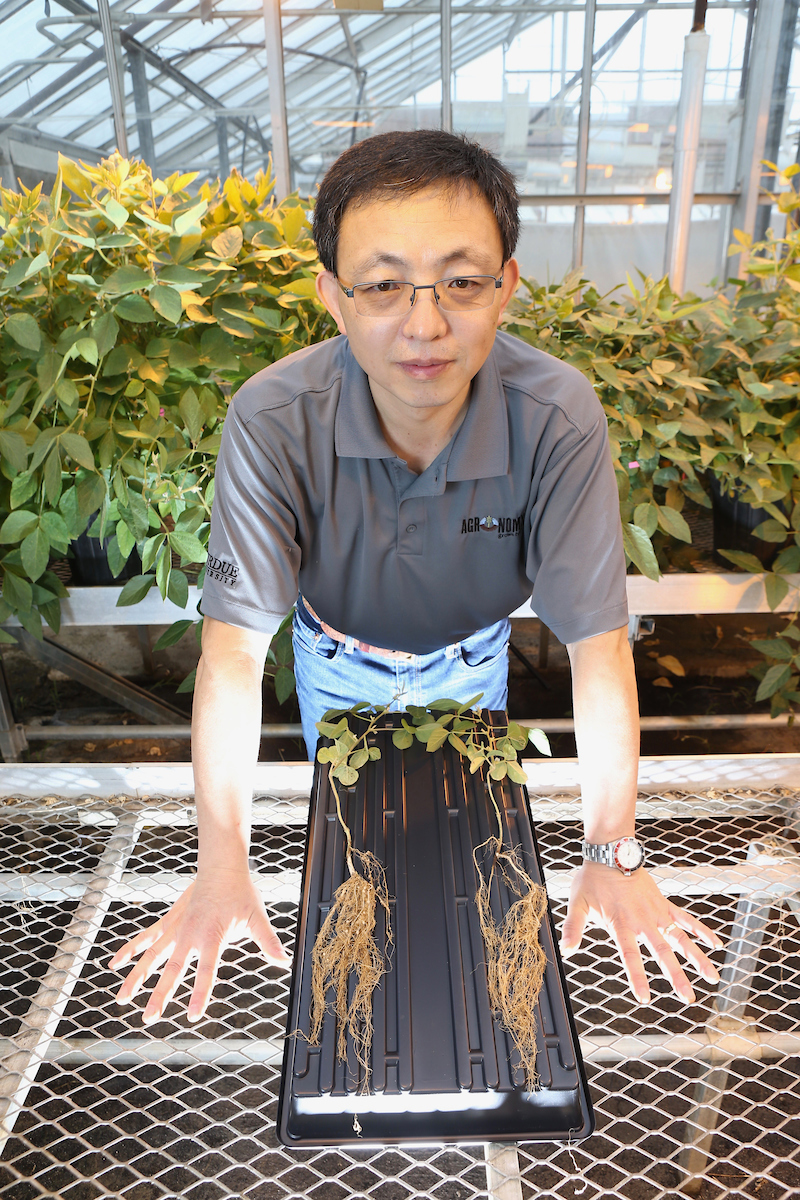Purdue Agronomy professor receives achievement award for contributions
After 15 years of building his plant genetics and breeding research program at Purdue University, Jianxin Ma, a professor in the Department of Agronomy and Center for Plant Biology, was recognized by the Soybean Genomics Executive Committee (SoyGEC) with the Mid-Career Achievement Award in Soybean Genetics and Genomics during the Soy2022 conference.
Ma said building the success of the research program has been based on translating basic discoveries in the lab to real-life changes in the work taking place in the fields, working directly with farmers to address their needs.
At this stage in his career, Ma has authored 103 peer-reviewed publications, been the primary inventor on three patents and patent applications, and received international accolades for his research, most recently for his work in identifying novel genese for broad spectrum resistance to root and stem rot in soybean plants.

But Ma said it is hard for him to claim the celebration of his work without acknowledging thecolleagues and students who’ve played crucial roles in every step of the way.
“To receive this award from the soybean research community is a great honor and I am very humbled,” Ma said. “This honor certainly belongs to my former and current lab members and the collaborators I have had the fortune to work with over the years.”
Ron Turco, Purdue Agronomy department head and professor, said the Mid-Career Achievement Award from SoyGEC recognizes Ma’s contributions as a stellar faculty member, a remarkable contributor to agricultural research, and most importantly his dedication as a mentor to students and other professionals.
“Dr. Ma has worked his entire career to answer critical questions to improve our understanding of how plants function in the agricultural environment. Most recently, he has been conducting cutting-edge research to investigate the numerous genetic controls impacting the performance of soybean (Glycine max),” Turco said. “His efforts include groundbreaking work on how the soybean interacts with its symbiont Rhizobium and novel approaches to how soybeans can be modified to develop resistance to the pathogen Phytophthora.”
Ma said he looks forward to applying his translational genetics and genomics work with CRISPR-based gene-editing and other technologies to precision breeding of new cultivars with increased grain yield, improved nutritional values and enhanced resilience to climate change.






